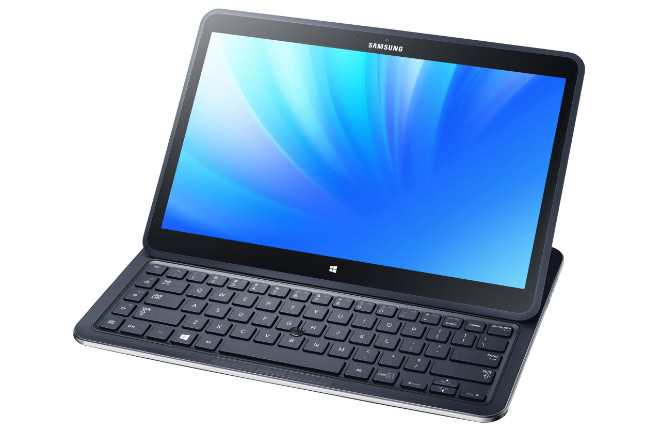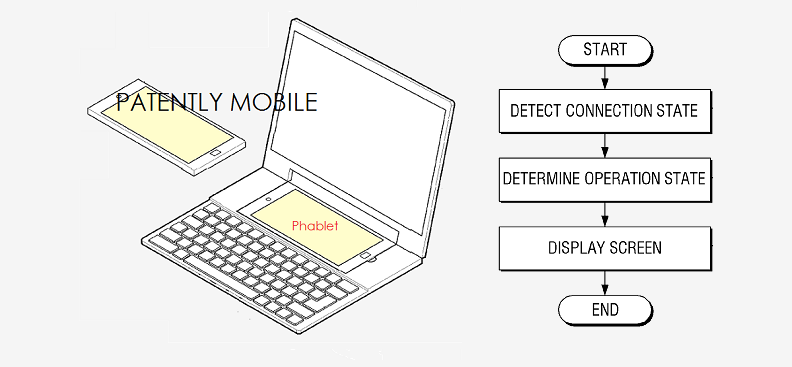Affiliate links on Android Authority may earn us a commission. Learn more.
Samsung's latest patent describes a dual-booting machine (again)

Despite the best of intentions, often times intellectual property laws may get in the way of potential products. Such was the sad fate that befell the Samsung Ativ Q, a device from 2013 that turned many heads for its high resolution screen and dual-booting of Windows 8 and Android. While this promising pipe-dream might be yesterday’s listful lament, it would appear Samsung is not done with the convertible form factor. Thanks to the team at Patently Mobile, the following is now upon us:

The schematic seen here is supposedly for a dual booting device. The premise is quite simple in theory: the computer runs Windows, but if you place a compatible Samsung mobile phone (the “phablet”) into the docking area, the OS would switch to Android. Interestingly enough, this is far from the first attempt at such a product, as ASUS had the Transformer Book V last year, and a similar idea was employed way back in 2011 with the Moto Atrix 4G Lapdock (minus the inclusion of Windows of course).
[related_videos title=”Samsung” align=”center” type=”latest” videosnum=”3″]
As Patently Mobile rightly mentions, the potential gain for Samsung here would be quite high, all the more so if Apple will truly bring a 12 inch+ ‘iPad Pro” to market this year. By developing a product like this, the company could instantly be established in the business productivity segment, something that it arguably tried last year with the release of the Galaxy Tab PRO series. This would be a much more aggressive take however, when you factor in the presence of Windows in-and-of-itself, as well as Samsung’s recent partnership with Microsoft to pre-install Office apps onto Galaxy phones and tablets in key markets. Microsoft would, in turn, also stand to benefit as well as it could potentially be selling Windows licenses to every single Galaxy Note owner.
While a patent application might be nothing more than an idea put down on paper to protect, Samsung’s commitment to reinvent itself this year is clear (see the Galaxy S6/TouchWiz) and there is the aforementioned fact that it has already sought to release a dual-booting device to begin with.
With all this said, there’s a rumored reason dual-booting Android/Windows were announced, but not actually released. Both Google and Microsoft were reportedly unhappy with the idea, and that may be the biggest obstacle in transforming this patent into a commercial product.